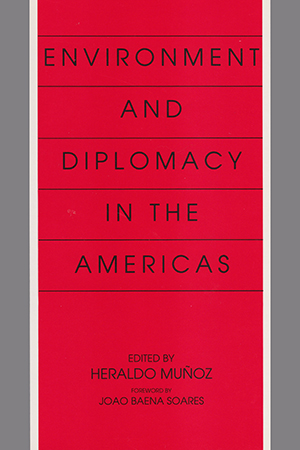The deterioration of the environment in the Americas exacts urgent and decisive action—a diagnosis shared by all 34 member countries of the Organization of American States. Consequently, in 1990 the OAS began a process of diplomatic debates oriented toward creating an inter-American system of nature conservation. This effort culminated at the June 1991 General Assembly in Santiago de Chile, where an Inter-American Program of Action for Environmental Protection was approved and an OAS Permanent Committee on the Environment created to design and oversee OAS environmental policy.
This book includes articles that derived from those discussions, along with other important essays, the complete Inter-American Program of Action, and a unique selection of key documents on environmental issues. Reflecting the views of both developed and developing countries, the book addresses many of the critical themes involved in diplomatic negotiations on the environment: criticisms of traditional development models; the demand by developing countries for favorable access to clean technologies and for additional financing for sustainable development; the critical need for transboundary cooperation; appropriate allocation of responsibility in determining contributions to environmental conservation and recuperation; and the danger of the legitimate application of environmental policies becoming "third generation" nontariff barriers to trade.
Heraldo Muñoz is a Chilean scholar, diplomat, and politician. He has served as, among numerous other posts, Chile’s foreign minister, Chile's ambassador to the United Nations, and assistant secretary general of the United Nations.
"Presents in a timely manner and at the highest level the views and common objectives of the region regarding the world debate on the environment. . . . The information contained in the book ensures its usefulness for all those dedicated to environment and development issues in the Americas."—Enrique Iglesias
"Cogently demonstrates that "science and technology are not necessarily the primary factors" in resolving [environmental] issues."—Journal of Third World Studies








